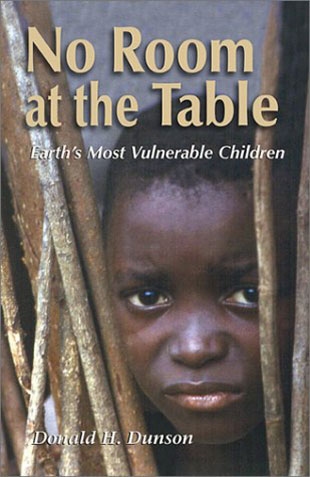"As the human family enters the third millennium, approximately eleven million of our children under five years of age continue to die each year from malnutrition or preventable diseases — that is, from a lack of love, solidarity, and human resourcefulness dedicated to them and their well-being. Because they are, de facto, the weakest link in the human chain, their fate is entirely dependent on solidarity with the stronger members. That solidarity is tenuous in our world today. The suffering of children in our cities as well as in the poorest countryside is an open wound, a festering sore that calls into question our very humanity: Do we possess hearts that know how to nurture our own offspring?
"The nurture that is the right of every child is most needed where it is most difficult to guarantee: in those areas of the world where the seemingly intractable grip of violence, poverty, and devastating epidemics subjects our children daily to fear and desolation. The sad and distant look in their eyes presents us with an unavoidable mandate to act on their behalf. Their eyes call out, "Protect me. Care for me. Make it possible for me to live.'
"Our young and impressionable daughters and sons are at risk not only from these physical threats but also from harmful cultural forces. Wherever male children are accorded favoritism in terms of respect and access to opportunities and resources denied to their female counterparts, something is terribly wrong in the human family. We jeopardize not only the safety and well-being of our young girls but also our own identity as a moral and just people. Wherever economic practices reduce young people to commodities or persuade them to believe that only those who can make it on their own are worthy of respect, then our promise to teach them the truth has been broken. Whenever any child is erroneously led to believe that love and affection can be earned, then we have barred that child from life's simplest and deepest joy."
